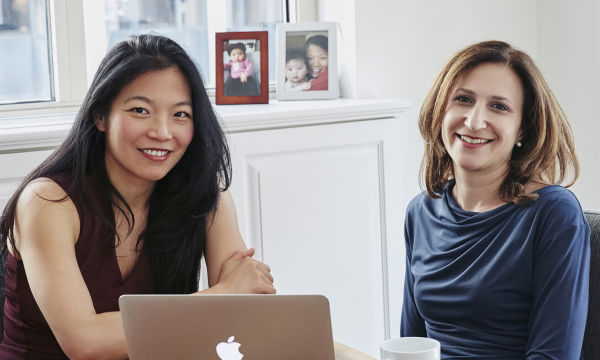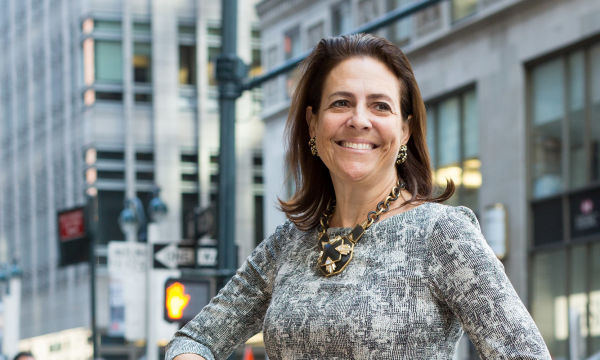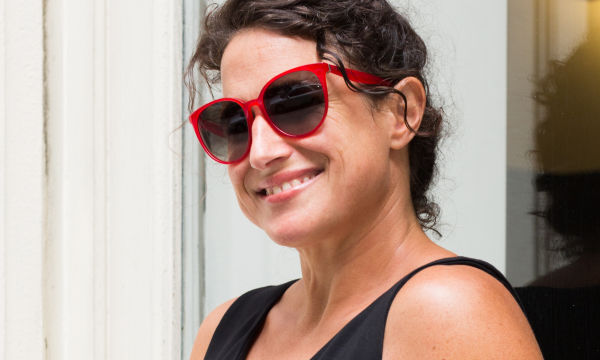Talking Tampons and Transparency with the Founders of LOLA
June 19, 2016 | Filed in: Woman of the Week
What’s in a tampon? It’s a seemingly simple question, but when Jordana Kier and Alexandra Friedman realized that leading companies were unwilling to answer it, they saw an opportunity. In July 2015, the duo launched LOLA, a subscription service that delivers all-natural tampons to your door. With investors like supermodel Karlie Kloss, LOLA has quickly become the cool girl’s tampon of choice. A year into its existence, the brand is thriving on its signature mix of candor (its tampons are 100% cotton) and cheekiness (“This too shall pass” is written on the inside of every LOLA box).
We sat down with founders Jordana and Alexandra to talk transparency, tampiñatas, and the bold maneuver that makes or breaks their fundraising pitches.
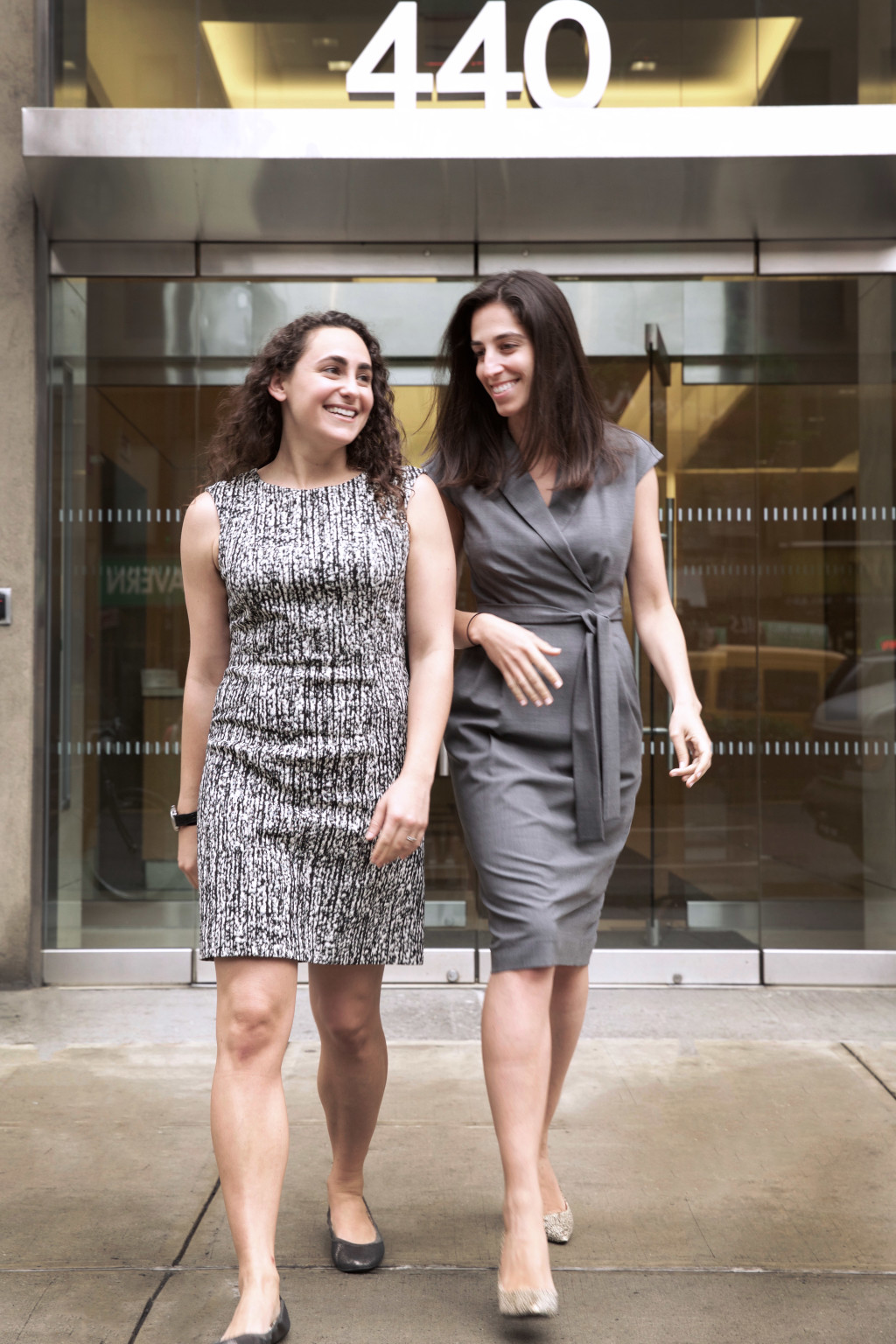
Jordana in the Giovanna dress and Alexandra in the Catherine dress.
So, what inspired you to start a tampon company?
Jordana: The initial idea focused on the delivery model. As women, we’re all running around. We’re prepared for 90% of things in our lives, and yet we’re often unprepared when we get our period—even though we know it’s coming. That was the initial premise, but as I did more research, I realized there was a larger issue at hand. I was in business school, sitting in the Columbia library, knee-deep in market research. I was calling up these big companies to ask, “What’s in your product?” and no one would tell it to me straight. They would just direct me to a section of their website that said, “May contain Rayon, Polyester, Polyethylene.” Well does it, or doesn’t it? At first, I was surprised and offended at how opaque the industry was. And then I was galvanized to create something more transparent. The question of, “What’s in my tampon?” is both very personal and universal.
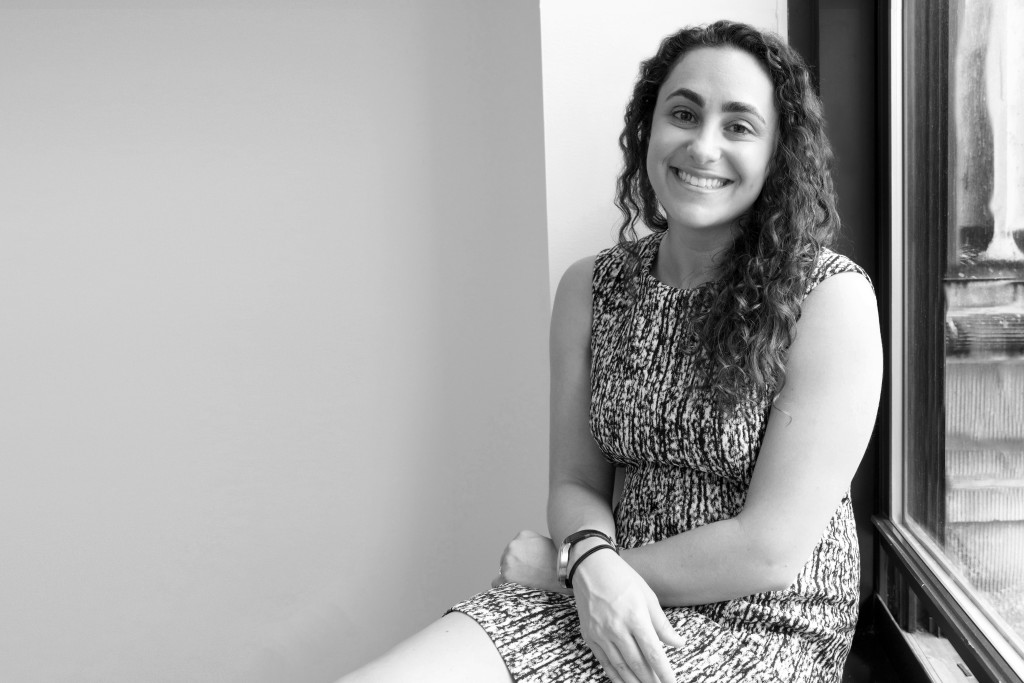
Jordana at LOLA headquarters.
Alexandra: Prior to starting LOLA, I had worked in consulting, investment, and at a tech startup. It actually wasn’t my goal to start a business, but the idea was just so compelling. When you spend time trying to learn what’s in the product you’ve been using for the past 15 or 20 years, it’s so frustrating when you can’t find out—and it raises a lot of questions. Why don’t we know? Who’s regulating this? What’s the FDA doing? Is it because this is a product for women? Who should be standing up for us? It’s enough to make you want to start a company.
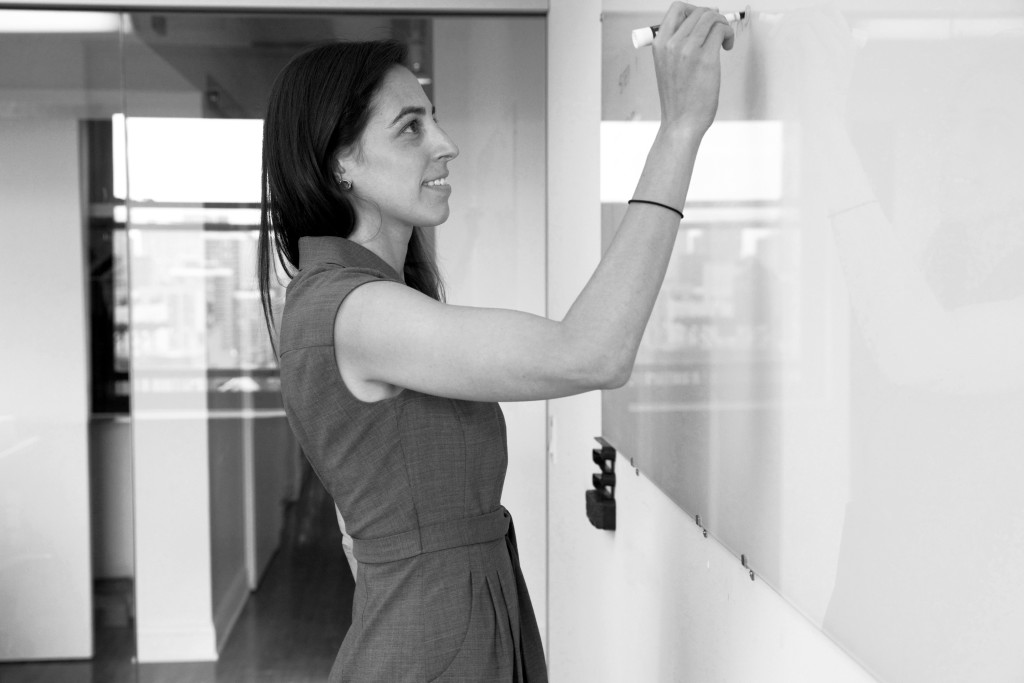
Alexandra with her green marker. “We tend to avoid the color red—for obvious reasons.”
As co-founders, how do you split up responsibilities as you build the business?
Jordana: It’s organized chaos. Alex takes more of the outward-facing functions—marketing, branding, PR—and I do more inward-facing stuff like operations, supply chain, finance. When it was just the two of us, we did everything together, from product development to brand voice. Now that we’re growing, we leverage each other to make sure we’re always staying consistent with our brand ethos.
What’s been the most surprising thing about running a business?
Alexandra: Building a company is not about instant gratification. We spent a whole year preparing to launch, and that was big and fun and there was a lot of buzz. But real success depends on what you do in the following six or 12 months. We’re always thinking, “What do we want to achieve in the next 12 months? And 12 months after that?” Figuring out how to lay the foundation for long-term growth has been a really big challenge. It’s exciting that things are going so well, but every day we come in thinking, “How do we best use our time?” Investing time in something that won’t grow the company is a big risk in early-stage business.
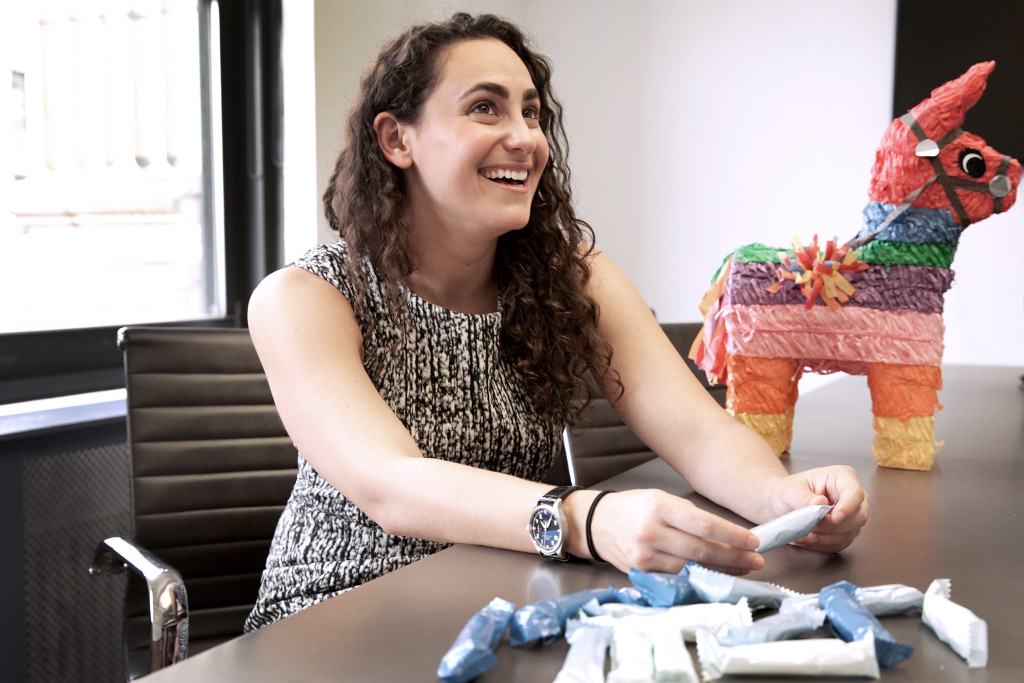
Speaking of your launch, tell me about these tampiñatas.
Jordana: When we launched, we sent them around to people who had been supportive or who aligned with our brand. And we just said, “Go at it. We’re celebrating periods.”
Alexandra: Companies like Warby Parker, SoulCycle, and Refinery29 sent us videos of their employees, basically gathered by the water cooler with a bat, cracking open their tampiñatas—tampons flying everywhere.
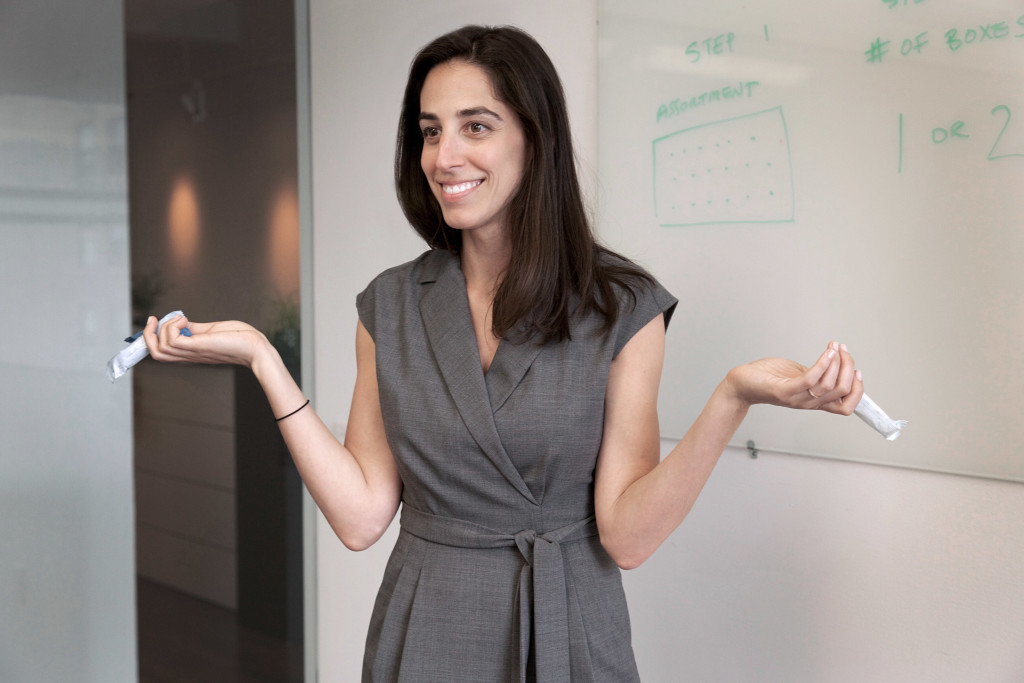
So, not your traditional woman-in-white-pants-prancing-on-the-beach approach to marketing.
Jordana: Not at all. The brand we’re trying to build deals with a serious topic—taking ownership of what you’re putting in your body—but we also want to make sure it’s relatable and we’re having fun. We try to be inclusive and treat this topic with a balance of seriousness and levity.
What’s something you’ve learned since becoming entrepreneurs?
Jordana: To just ask. When we first started fundraising, we would pitch our hearts out and show the investors our vision. But they’re never going to say, “Great, here’s a million dollars.” You have to explicitly ask for it.
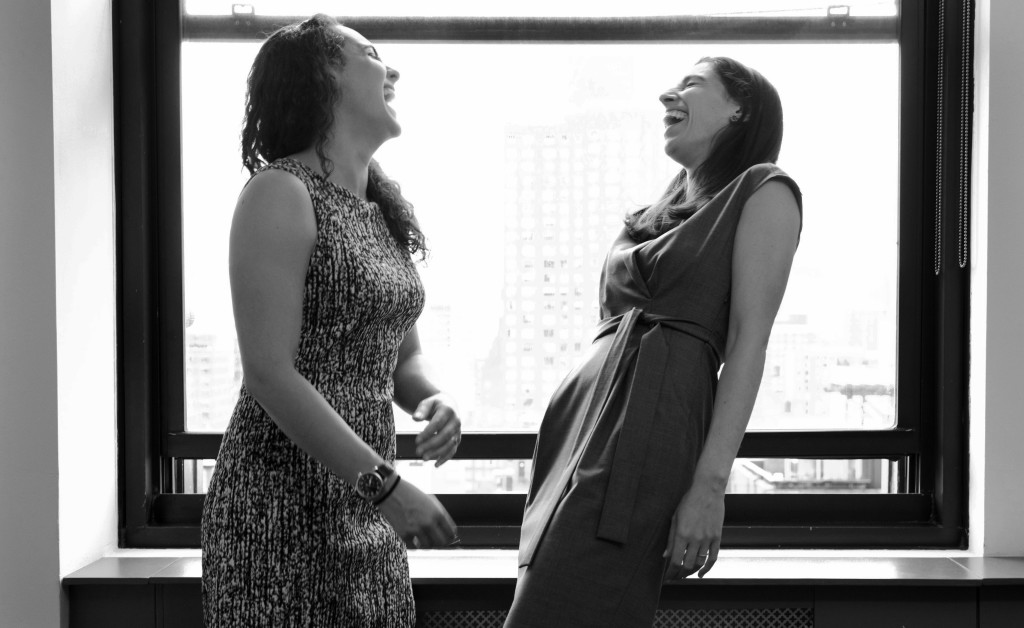
Is it ever awkward pitching a tampon company to male investors?
Alexandra: For them. It’s not awkward for us.
Jordana: It’s empowering for us. Frankly, most men just have a lot of questions. They’ve never held a tampon or seen how it expands when it absorbs liquid.
Alexandra: They’ve definitely never had two women they’ve just met open a tampon in a restaurant and hand it to them—that’s new for them.
Jordana: That’s part of our pitch. Five or ten minutes in, we say “Can we give you a demo?”
And you put a tampon in a glass of water?
Jordana: Yeah, their water.
Alexandra: She’s not kidding.
That’s quite a mic drop.
Alexandra: We know in that moment whether they’re interested. There’s just no hiding it.






